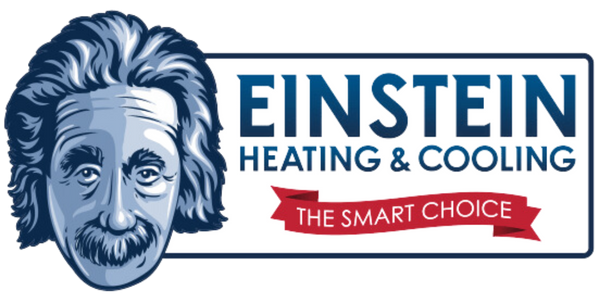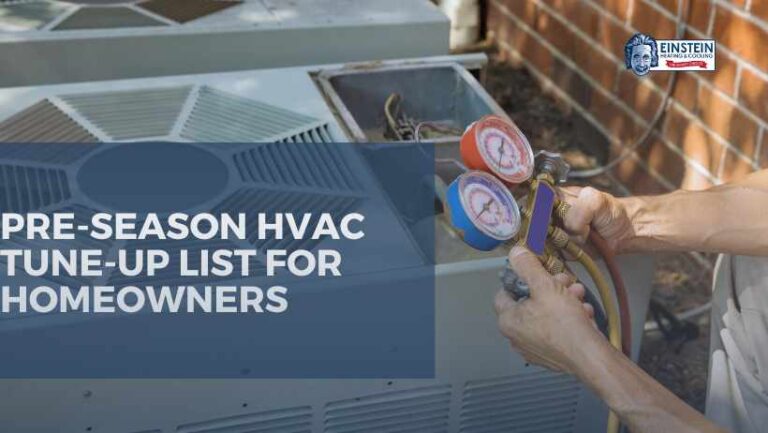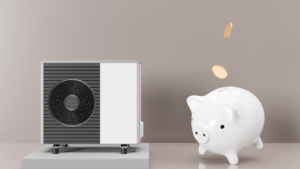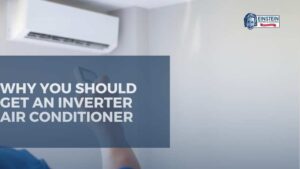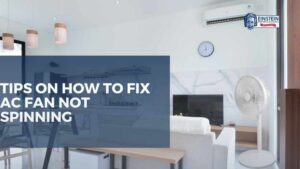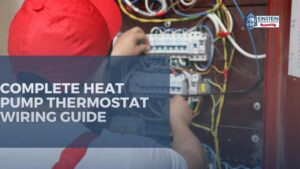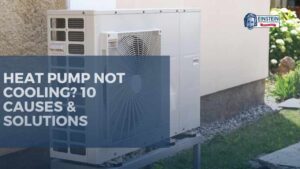As the seasons transition, it’s crucial to ensure your HVAC system is in top-notch condition. A pre-season HVAC tune-up can be the key to a comfortable and energy-efficient home. In this guide, we’ll delve into the essential factors to consider when preparing your HVAC system for the upcoming season.
1. Early Planning is Key
Schedule a Professional Inspection
Before the season kicks in, it’s wise to schedule an HVAC technician for a thorough inspection. This will help identify potential issues early on, preventing unexpected breakdowns during extreme weather conditions.
Plan for Appointments
HVAC professionals tend to be busier during peak seasons. Plan your pre-season tune-up well in advance to secure a convenient appointment and avoid last-minute rush.
2. Filter Check and Replacement
Assess the Current Filter
Inspect your HVAC system’s air filter and determine if it needs replacement. A clogged or dirty filter can significantly reduce efficiency and indoor air quality.
Replace Filters Regularly
Regularly replacing air filters is crucial for maintaining optimal system performance. It ensures proper airflow, reduces energy consumption and extends the lifespan of your HVAC unit.
3. Thermostat Calibration
Check Thermostat Accuracy
Ensure your thermostat accurately reflects the room temperature. Any discrepancies can lead to inefficient heating or cooling and discomfort in your living spaces.
Calibrate the Thermostat
Calibrate your thermostat to ensure it accurately controls the temperature, providing consistent comfort and energy savings.
4. Inspect and Clean Ductwork
Visually Inspect Ducts for Leaks
Check for visible signs of leaks or damage in the ductwork. Leaks can lead to energy wastage and compromise indoor air quality.
Schedule Professional Duct Cleaning
Consider professional duct cleaning to remove accumulated dust, debris, and allergens. Clean ducts improve air quality and enhance system efficiency.
5. Clean and Inspect the Outdoor Unit
Remove Debris from Around the Unit
Clear leaves, grass, and other debris from around the outdoor unit. Adequate clearance ensures proper airflow and prevents overheating.
Inspect for Physical Damage
Check for any physical damage to the outdoor unit. Bent fins or damaged components can hinder performance and efficiency.
6. Inspect Refrigerant Levels
Monitor Refrigerant Levels
Ensure that your HVAC system has the correct refrigerant levels. Low levels can lead to inefficient cooling and potential damage to the compressor.
Schedule Professional Pre-Season HVAC Tune-Up
A professional HVAC technician can accurately measure and adjust refrigerant levels, ensuring optimal system performance.
7. Lubricate Moving Parts
Identify Moving Parts Requiring Lubrication
HVAC systems consist of various moving parts that require lubrication to reduce friction and enhance efficiency.
Use Recommended Lubricants
Follow manufacturer guidelines for the type of lubricant and the frequency of application. Over-lubrication can be as detrimental as insufficient lubrication.
8. Inspect Electrical Components
Check Wiring and Connections
Inspect electrical wiring and connections for any signs of wear, damage, or loose connections. Faulty wiring can pose safety hazards and affect system performance.
Tighten and Secure Connections
Ensure all electrical connections are tight and secure. Loose connections can lead to electrical issues and system malfunctions.
9. Evaluate System Controls
Test and Calibrate Controls
Test and calibrate the various controls of your HVAC system. This includes the on/off switch, safety controls, and other automated features.
Upgrade Outdated Controls
Consider upgrading outdated controls to programmable or smart thermostats for enhanced energy efficiency and convenience.
10. Inspect Blower Assembly
Clean Blower Components
Dust and debris can accumulate on the blower components, reducing airflow. Regular cleaning ensures optimal performance.
Verify Blower Belt Tension
Check the tension of the blower belt and adjust if necessary to avoid HVAC repairs. A loose or damaged belt can lead to decreased efficiency and increased energy consumption.
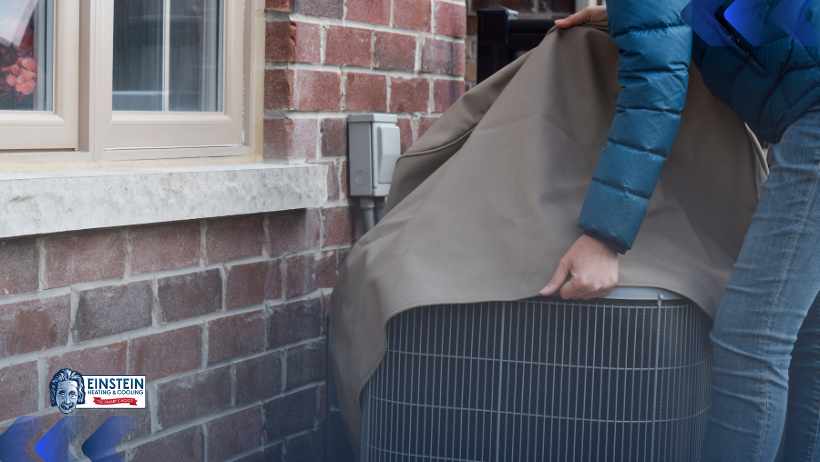
11. Check and Seal Leaks in Ductwork
Conduct a Ductwork Pressure Test
Professionally assess the ductwork for leaks using a pressure test. Sealing leaks improves energy efficiency and enhances overall system performance.
Utilize Duct Sealant
Apply duct sealant to any identified leaks or gaps. Properly sealed ductwork ensures that conditioned air reaches its intended destination without wastage.
12. Evaluate Insulation
Check Insulation Levels
Inspect the insulation in your home, especially in areas surrounding ductwork. Adequate insulation helps maintain consistent temperatures and reduces energy consumption.
Upgrade Insulation if Necessary
Consider upgrading insulation in areas where it may be lacking. Improved insulation contributes to energy efficiency and lower utility bills.
13. Assess Overall System Performance
Monitor System Performance
After the tune-up, monitor your HVAC system’s performance for a few days. Pay attention to any unusual noises, temperature fluctuations, or other signs of potential issues.
Schedule Follow-Up Inspections
Consider scheduling follow-up inspections to address any lingering concerns or emerging issues. Proactive HVAC maintenance helps prevent major problems down the line.
14. Explore Energy-Efficient Upgrades
Investigate Energy-Efficient HVAC Models
Consider upgrading to a more energy-efficient HVAC system if your current unit is outdated. Newer models often come with advanced features that can significantly reduce energy consumption and operating costs.
Explore Smart HVAC Solutions
Smart HVAC technologies allow for remote control and automation. Investing in a smart thermostat, for example, enables you to optimize energy usage based on your schedule, further enhancing efficiency.
15. Promote Indoor Air Quality
Change or Clean Air Filters Regularly
Maintaining clean air filters not only improves HVAC efficiency but also contributes to better indoor air quality. Regular filter changes or cleanings help remove dust, allergens, and pollutants.
Consider Air Purification Systems
Explore the possibility of integrating air purification systems into your HVAC setup. These systems can help eliminate airborne particles, allergens, and contaminants, promoting a healthier indoor environment.
16. Implement Year-Round Maintenance Practices
Schedule Regular Check-Ups
In addition to pre-season tune-ups, schedule regular HVAC check-ups throughout the year. This proactive approach allows for the early detection and resolution of potential issues.
DIY Maintenance Tasks
Engage in simple do-it-yourself maintenance tasks between professional visits. This may include cleaning vents, checking thermostat settings, and ensuring the area around the outdoor unit remains clear.
17. Educate Yourself on HVAC Operation
Understand Thermostat Programming
Take the time to understand the programming features of your thermostat. Properly programmed settings can optimize comfort while minimizing energy consumption.
Know the Basics of HVAC Components
Familiarize yourself with the key components of your HVAC system. This knowledge can be valuable when communicating with HVAC technicians and troubleshooting minor issues.
18. Monitor Energy Bills
Track Monthly Energy Consumption
Regularly monitor your energy bills to identify any unexpected spikes in consumption. Sudden increases may indicate potential issues with your HVAC system that require attention.
Seek Professional Advice for High Bills
If you notice a significant rise in energy bills, consult with an HVAC professional. They can assess your system, identify inefficiencies, and recommend solutions to bring your energy consumption back to normal levels.
19. Stay Informed About Local Rebates and Incentives
Research Available Rebates
Explore local and state incentives for energy-efficient HVAC upgrades. Many regions offer rebates or tax incentives, providing financial benefits for those who invest in environmentally friendly systems.
Take Advantage of Energy-Efficient Programs
Participate in energy efficiency programs offered by utility companies. These programs often provide insights and incentives to help homeowners reduce energy consumption and save on utility costs.
20. Prepare Emergency Action Plans
Familiarize Yourself with Emergency Procedures
Be prepared for unexpected HVAC issues by understanding emergency shutdown procedures. Knowing how to turn off your HVAC system in case of a malfunction can prevent further damage.
Have Emergency Contacts Handy
Keep a list of emergency contacts, including HVAC technicians and utility services. Quick access to these contacts can prove invaluable during urgent situations, ensuring timely assistance.
Conclusion
A pre-season HVAC tune-up from Einstein Heating and Cooling is a proactive approach to ensure your heating and cooling system operates efficiently when you need it the most. By addressing these key factors, you can maximize comfort, enhance energy efficiency, and extend the lifespan of your HVAC unit. Prioritize regular maintenance, and you’ll reap the benefits of a well-tuned system throughout the changing seasons.
